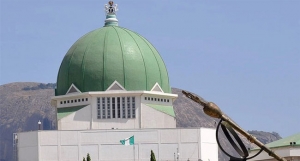- National Assembly faults court ruling, says it will appeal against it
The Federal High Court, Abuja, on Wednesday nullified the National Assembly’s amendment to Clause 25 of the Electoral Act (Amendment) Bill 2018, which altered the sequence of election ahead of the 2019 general elections.
Justice Ahmed Mohammed, who presided over the court, held that the National Assembly did not have the powers to reorder the election sequence. But the National Assembly does not agree with the ruling of the court and has indicated plan to appeal against it.
According to the court, the power to fix election sequence rested solely with the Independent National Electoral Commission (INEC).
In the election timetable released by INEC, it INEC fixed Presidential and National Assembly (NASS) elections for Saturday, Feb. 16, 2019, and Governorship and State Assembly elections on Saturday, March 2, 2019.
The National Assembly, however, changed the arrangement, demanding that the National Assembly elections come first and the presidential poll last.
Accord filed the suit against the National Assembly, challenging its alteration of the election sequence as already stipulated by the INEC.
Justice Mohammed said that he agreed with the submissions of Mr Wole Olanipekun, (SAN), counsel to the Accord.
This was to the effect that an amendment to the Electoral Act by the National Assembly could not override the constitutional powers granted to INEC in Paragraph 15(a) of the Third Schedule to the 1999 Constitution.
The judge said that he was persuaded by submissions of Olanipekun that the Constitution gave INEC the sole responsibility to conduct, organise, issue election times table and decide election dates.
He said it was his opinion that the National Assembly was in clear breach of Paragraph 15(a) of the Third Schedule to the 1999 Constitution, as altered.
This he said was when it went ahead to alter the sequence of election for the purpose of the 2019 elections.
The court held that a right conferred by the Constitution could not be taken away by any act, except by the Constitution itself.
Other defendants in the suit are the Attorney -General of the Federation, and Independent National Electoral Commission.
The National Assembly through its counsel , Mr Sebastine Hon, (SAN), said that they would appeal the judgment of the trial court.
While a member of House of Representatives, Abdulrazak Namdas (Adamawa-APC), has insisted that the National Assembly has the power to re-order elections sequence contrary to the judgment of Abuja Federal High Court.
Namdas made this known in an interview with Newsmen on Wednesday in Abuja.
“The court has said its own, but I want to tell you that we have these powers because we make laws and the Electoral Act itself was passed by the parliament. “This is just amending an aspect of the Electoral Act. “If you say we cannot amend an aspect of Electoral Act, then who gave us the powers to even enact the Electoral Act in the first place.
He added, “I am not a Lawyer, but watch it, listen to it, even the Electoral Act was enacted by the National Assembly and was amended in 2010. “Even Bills, laws and constitutions are being reviewed by the National Assembly.
Namdas gave the indication that the National Assembly would appeal the decision of the court. “For you to say we cannot do that, well, this is a legal opinion from the court, but I can tell you, when we get to the upper court, people will get to know the right one. “We will do our own, and if people feel aggrieved, they will go to court. But in my views, we have the powers,’’ he said.














